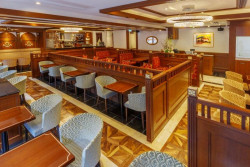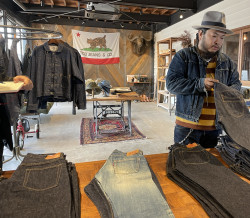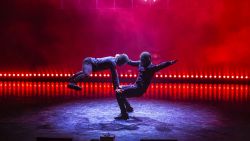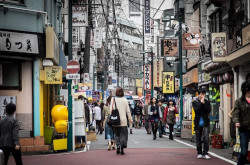
Originally published on metropolis.co.jp on April 2010
There’s no shortage of Japanese soccer stars who have headed abroad to try and make it in the big leagues, mainly Europe. Almost all of them have fallen short. So should the local soccer scene rejoice that Shunsuke Nakamura, Junichi Inamoto and Shinji Ono have returned to these shores?
In a word: no. All have done relatively well overseas, but none have been a great success. Instead, those involved with the game in Japan should be asking themselves why so many players with so much talent in a strong domestic league can achieve so little on foreign soil—or with the national side.
Take Shunsuke Nakamura. His comeback game with Yokohama Marinos against newly promoted Bellmare Hiratsuka was a disappointment, to say the least. It was just like watching the Shunsuke of old—uninspired and unimpressive. In the past, Nakamura (pictured) had the ability to play down to the level of whatever team he was up against, while never rising above the level of his peers. Like so many Japanese teams and players, it seemed that the most important thing was not to fail. Yet he’s possessed of the kind of talent that most Brazilians would kill for. Early on in his career, I wrote that Nakamura’s left foot was comparable to Beckham’s right. In addition to his superb free-kick and crossing ability, his trickery on the ball is world class. If only he had Beckham’s attitude.
To his credit, Nakamura is a much better player than he was when he left Japan for Italian club Reggina in 2002. Like Hidetoshi Nakata, he figured out that a lazy lightweight wasn’t going to make it in Europe’s toughest leagues. He improved his work rate and fitness, and was soon able to hold his own against some of the best. His transfer to Celtic in 2005 was a curious move, but manager Gordon Strachan raved about his quality, and Nakamura fitted well into the team—so well that he swept the Scottish player of the year awards in 2007.
Finally, Nakamura fulfilled his dream of playing in Spain, but it didn’t work out and he has returned earlier than expected. At 31, he has enough left in the tank to make a significant contribution to Japanese soccer for a number of years, but he must do something that’s anathema to local players and teams: he must dominate opposition sides, humiliate them even. If he can’t do better than he did against Bellmare, what he has learned over the years will have been a waste of time. Nakamura can give back to Japanese soccer, but the fear is he’s just back to collect his pension.
Like Nakamura, Ono has returned to his roots and has signed with Shimizu S-Pulse. Though he’s arguably the most gifted footballer Japan has ever produced in terms of raw talent, a player is only as good as the effect he has on his team. Ono should be able to walk into the Japan squad whenever he feels like it, but he’s not regarded as a team player, and his many injury problems don’t help.
Inamoto, meanwhile, has done time at seven European clubs, but barely left a mark on any of them. Like Nakamura and Ono, he’s a gifted player and at times has shown real class—most memorably his hat trick for Fulham against Bologna in the Intertoto Cup final—but he’s been a real wanderer and his lack of stability hasn’t really done him any favors. Still, he should look good in Kawasaki Frontale’s lineup (not that difficult).
All three will be hoping for a chance to represent Japan at the World Cup. Nakamura is certain to go, Inamoto maybe, and Ono not very likely. Whether they do or they don’t, it would be nice to see these decent players playing decent football as they see out their careers on home soil.
Yokohama F. Marinos vs. Shimizu S-Pulse. Apr 3, 3pm. ¥1,900-¥4,500. Nissan Stadium, Shin-Yokohama. Tel: 045-277-2307.
Kawasaki Frontale vs. FC Tokyo. Apr 4, 4pm. ¥1,500-¥6,000. Todoroki Stadium Kawasaki. Tel: 044-739-6070.








